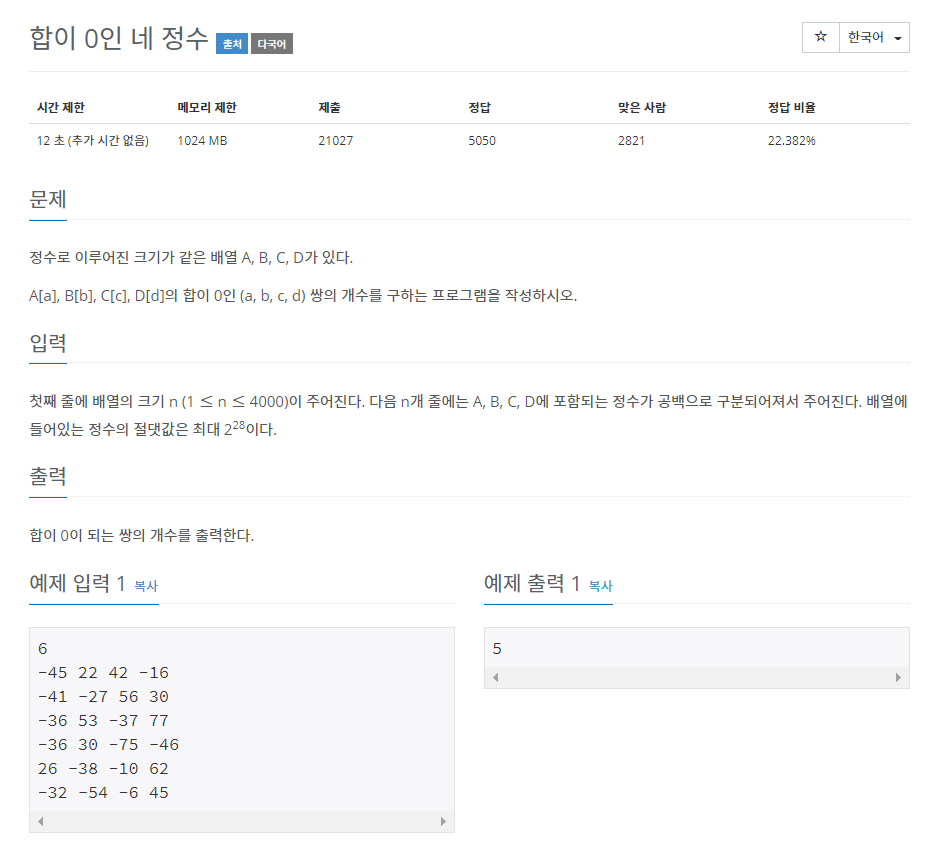백준

1. Python
from collections import defaultdict
import sys
input = sys.stdin.readline
n = int(input())
alist, blist, clist, dlist = [], [], [], []
for _ in range(n):
a, b, c, d = map(int, input().split())
alist.append(a); blist.append(b); clist.append(c); dlist.append(d)
abdic = defaultdict(int)
for i in range(n):
for j in range(n):
ab = alist[i] + blist[j]
abdic[ab] += 1
result = 0
for i in range(n):
for j in range(n):
cd = -(clist[i] + dlist[j])
if cd in abdic:
result += abdic[cd]
print(result)
2. C++
#include <cstdio>
#include <vector>
#include <algorithm>
using namespace std;
typedef long long LL;
int n;
vector<int> a, b, c, d;
vector<int> ab, cd;
LL st2_2() {
LL res = 0, cnt = 0;
sort(ab.begin(), ab.end());
sort(cd.begin(), cd.end());
int p_cd = cd.size() - 1;
for (int p_ab = 0 ; p_ab < ab.size() ; p_ab++) {
int target = -ab[p_ab];
if (0 < p_ab && ab[p_ab] == ab[p_ab - 1]) {
res += cnt;
}
else {
while (0 <= p_cd && target < cd[p_cd]) {
p_cd--;
}
cnt = 0;
while (0 <= p_cd && target == cd[p_cd]) {
cnt++;
p_cd--;
}
res += cnt;
}
}
return res;
}
int main() {
scanf("%d", &n);
for (int i = 0 ; i < n ; i++) {
int u, v, w, x;
scanf("%d%d%d%d", &u, &v, &w, &x);
a.push_back(u);
b.push_back(v);
c.push_back(w);
d.push_back(x);
}
for (int i = 0 ; i < n ; i++) {
for (int j = 0 ; j < n ; j++) {
ab.push_back(a[i] + b[j]);
cd.push_back(c[i] + d[j]);
}
}
printf("%lld", st2_2());
}

